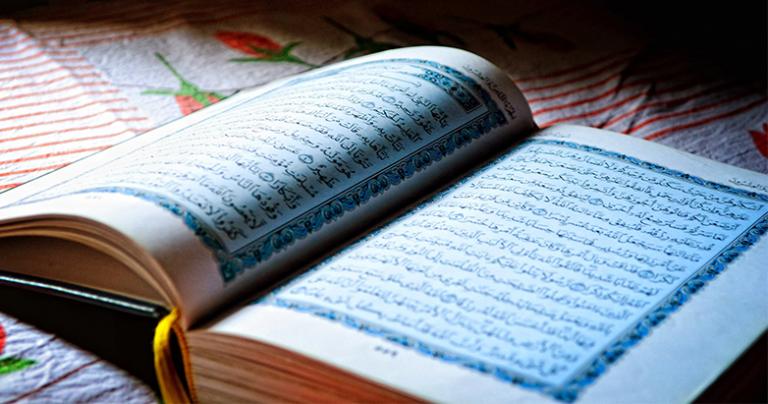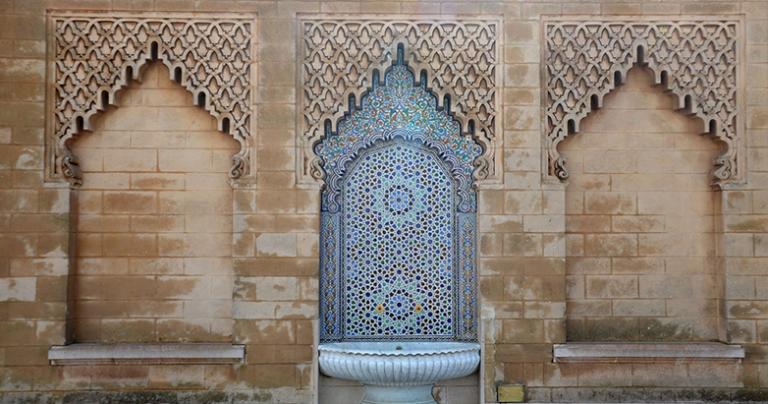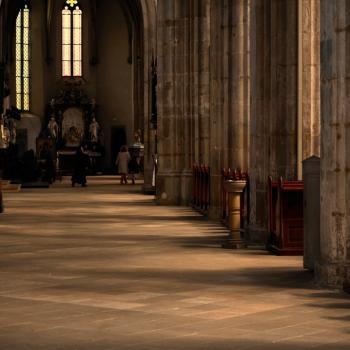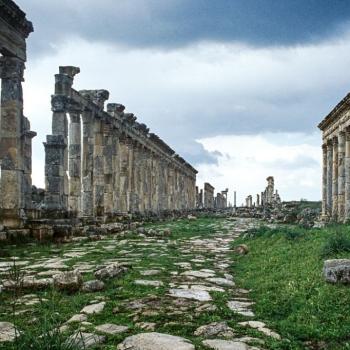When searching for information about Al-‘Uzza, Al-Lat, and Manat, there is something I keep coming across, over and over again. There is a prayer supposedly said in pre-Islamic times for the Three Daughters of Allah and the debate about whether these Goddesses were recognized by Muhammad. After reading about this issue, I cannot help but agree with those who said it actually happened.

Tempted by the Devil
In short, Muhammad was reading some verses in Mecca, longing for more followers, but was tempted by Satan when he was reading the Sūrat an-Najm, “Have you thought of al-Lāt and al-‘Uzzá and Manāt, the third, the other?” (Quran 53:19–20) He said that “These are the exalted gharāniq, whose intercession is hoped for.”
This story is usually shared along with the following prayer:
‘Wa’l-Lāt-a wa’l Uzzā, wa Manāt-a al-thalithāta al-‘ukhrā, Tilk al-gharāniq al-‘ulā, wa inna shafā’ata-hunna la-turtajā.’
‘By al-Lāt and al-‘Uzzā, and Manāt, the third goddess, the other; Verily they are the most exalted cranes, and their intercession is to be hoped for.”
Although the exact meaning of “al-gharāniq” is not clear since it is an hapax legomenon, a word or expression that occurs only once within a context, it has been proposed that it could be “females” and/or “cranes”. I think the second option is highly probable since it appears in the singular form as ghirnīq, ghurnūq, ghirnawq, and ghurnayq. It could be an archaic version of the word.
On a side note, this episode was the base The Satanic Verses, by Salman Rushdie, a book that put its author in danger more than once, and was even banned in India for being considered hate speech towards Muslims. If I’m not mistaken, The History of al-Tabari Vol. 6: Muhammad at Mecca also explains this episode. I guess my pre-Islamic reading list for this year just got longer.

Fact or fiction?
This idea of Muhammad being tempted by the Devil is understandably not well-seen by Muslim scholars. Who would like their prophet to lose a single battle against the very being He is to save them from? I’m sure the idea of Aradia being beaten down by any kind of being, creature deity, would be frown upon as well.
However, as secular scholars have proposed, why would early Muslim biographers create a story that degrades Muhammad? I find it very possible for this episode to be removed at some point in history so he is less human and more divine, more perfect, and not a mortal man with the same weaknesses as the others.
If Muhammad is one of the Prophets, he is supposed to be special, and even more, being the last one, he who received the Quran from God. The possibility of him being fooled by God’s enemy is inconceivable. The only rational explanation, then, for the Al-gharāniq Episode to be recorded, is that it has to have some truth in it.

Using the Satanic Verses
On a more personal note, I have used that prayer in my practice several times, and I have never felt anything bad, dangerous, or negative. I spent some time not doing it, and although my own prayers worked wonderfully, I still got the feeling that there was something missing, something I had to include (again).
I always felt connected to the Three Daughters of Allah as I recited those lines, always felt their presence and their approval when I used it, and They have been patient as I search for a rational explanation to this episode. However, I do think it’s time I include it again in my devotions along with the prayers I have written for them.
Maybe the prayer is not ancient, maybe the Al-gharāniq Episode was modified, maybe Muhammad really wanted to include Them in Islam, but the idea was too foreign and strange for him to do it, and decided to do the opposite. We may never know, but I do know I feel invigorated when using it, so I plan to keep doing it.


















